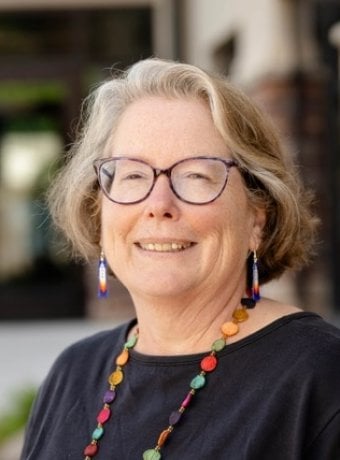Kathy Halvorsen is the associate vice president for research development at Michigan Tech. She reflects on what makes a research culture a welcoming environment.
As a research team leader and a leader in our Vice President for Research Office, I’m passionate about pursuing and facilitating excellent research. Excellent scientific teams are built with people with the best social and scientific skills.
About the Researcher
There are many barriers on the pathway toward becoming a scientist. Putting together the time and financial resources to complete the two to three degrees most science requires is challenging. Science is hard intellectual and emotional work. Feeling the confidence to believe in ourselves and our ability to succeed on this pathway is difficult. In some ways, these difficulties increase as individuals move from undergraduate to graduate student, from graduate student to postdoc, and from postdoc to researcher and/or faculty member.
If we come from a group that is underrepresented in science, many, if not all, of these barriers get higher. A first-generation college student may struggle to navigate the college application process. Native American scientists may find it challenging to get a job in their field close enough to their Tribal Nation to maintain the connections and activities vital to who they are. Latinx postdocs may endure racism in the community surrounding their employer. LGBTQA+ graduate students may have advisors who are judgmental about their gender or sexual identity. Research has shown that job applicants with names that appear African American are less likely to be interviewed for jobs when they are equally or more qualified than other applicants whose names sound Anglo-Saxon. Female professors receive, on average, lower scores on the teaching evaluations that play a role in their success as a researcher. Being the “only one” in a group of our peers of any category central to who we are often reduces our ability to feel confident, find effective mentors and navigate difficult pathways.
MTU’s Action Plan
Belonging means you’re an integral part of a community where you can explore and grow with others who will support you. Wayne Gersie, the Vice President for Diversity and Inclusion, says his office exists to foster these values at Michigan Tech — for everyone. Listen to him share his vision for the University’s 120-day action plan for diversity, equity and inclusion.
Life and research can be hard for anyone, and being unaware of the challenges faced by people around us — and the people who are not around us, the people who are not represented equally in our research communities — solidifies the barriers to their education. These barriers decrease the ability of many excellent students and researchers to make careers in science. And ultimately, this decreases my research teams’ capacity to do great science. It also reduces Michigan Tech’s ability to recruit and develop successful students and researchers, which can perpetuate a vicious circle where so many of our research fields are dominated by people who identify with one race, ethnicity, gender, sexuality or class.
How do I attempt to help reduce these barriers in my work? Each of my major research projects weaves the inclusion of underrepresented students and scientists in the team deeply into the fabric of the proposal and research. In order to do that well, we work hard to learn from others who support diversity, equity and inclusion particularly well in order to ensure effective inclusion within our work while providing a strong sense of belonging. We meet together in diverse groups to read, discuss and learn about effective diversity, equity, inclusion and sense of belonging best practices. Our team meetings include discussions and development of team norms of inclusion and respect across all types of difference, including disciplinary differences. When disrespectful behaviors occur, we work to carefully and conscientiously discuss and address them in a manner that ensures the safety and comfort of the disrespected team member(s). This requires those of us in the majority and/or in positions of power to work hard to learn and to sometimes be uncomfortable.
My passionate belief in the protection and enhancement of diversity, equity and inclusion boils down to ensuring that we are preparing and attracting the best researchers that we can. As the National Science Board of the National Science Foundation recently found, the “missing millions” of underrepresented researchers is reducing U.S. scientific competitiveness. Only with the most talented pool of researchers possible can we work together to understand and solve our problems, especially the vital natural resource and environmental problems creating arguably our greatest challenges as a species.
Michigan Technological University is an R1 public research university founded in 1885 in Houghton, and is home to nearly 7,500 students from more than 60 countries around the world. Consistently ranked among the best universities in the country for return on investment, Michigan's flagship technological university offers more than 185 undergraduate and graduate degree programs in science and technology, engineering, computing, forestry, business, health professions, humanities, mathematics, social sciences, and the arts. The rural campus is situated just miles from Lake Superior in Michigan's Upper Peninsula, offering year-round opportunities for outdoor adventure.








Comments